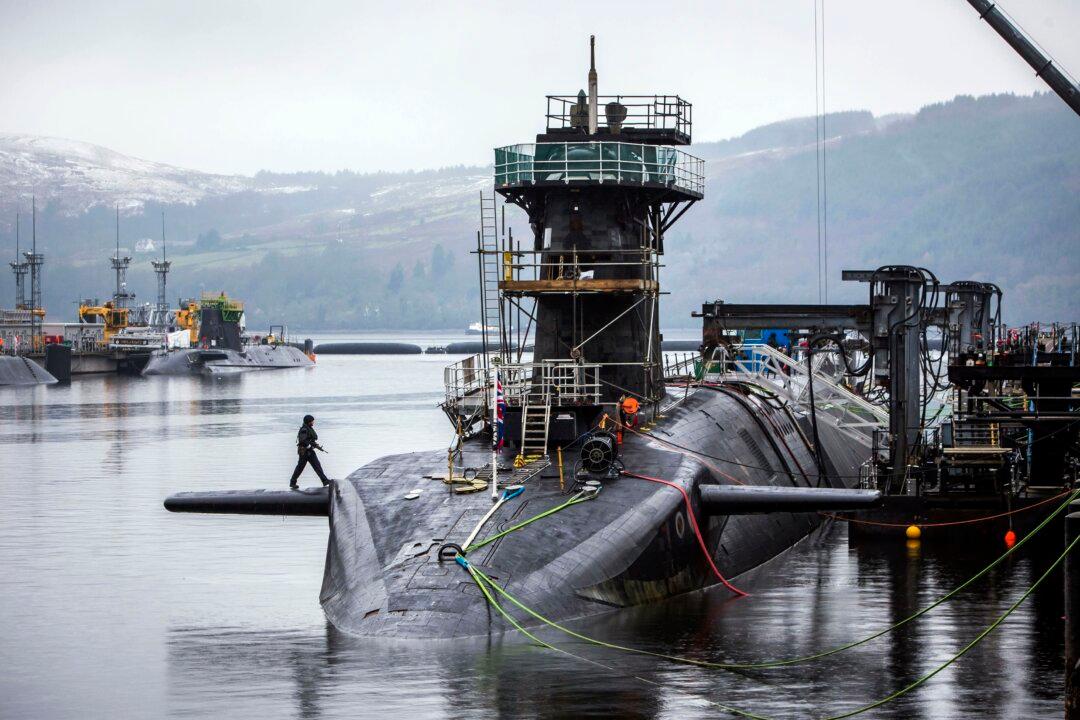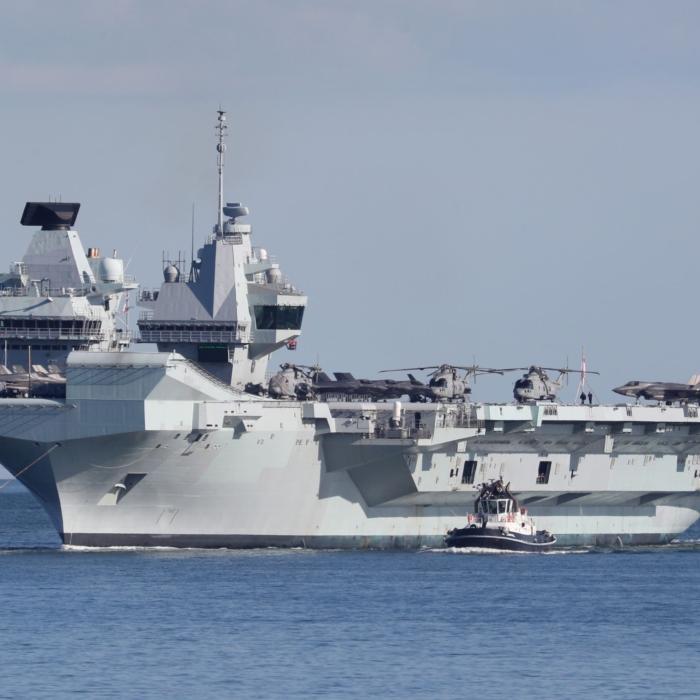Defence Secretary Grant Shapps confirmed an “anomaly” occurred during a test operation of nuclear submarine HMS Vanguard, following reports of a Trident missile test failure.
In a written statement to Parliament on Wednesday, Mr. Shapps said the test, conducted on Jan. 30, “reaffirmed the effectiveness of the UK’s nuclear deterrent” and that the submarine and crew “were successfully certified and will rejoin the operational cycle as planned.”
Mr. Shapps continued: “On this occasion, an anomaly did occur, but it was event specific and there are no implications for the reliability of the wider Trident missile systems and stockpiles. Nor are there any implications for our ability to fire our nuclear weapons, should the circumstances arise in which we need to do so.”
Reports Claim Trident Missile Failed
The defence secretary made the statement after The Sun reported a claim on Tuesday that a Trident missile had misfired and landed in the Atlantic Ocean metres from HMS Vanguard while on exercises off Florida.The Ministry of Defence confirmed to the newspaper that during a recent test “an anomaly occurred,” but “as a matter of national security, we cannot provide further information on this, however we are confident that the anomaly was event specific, and therefore there are no implications for the reliability of the wider Trident missile systems and stockpile.”
“HMS Vanguard and her crew have been proven fully capable of operating the UK’s Continuous At-Sea Deterrent, passing all tests during a recent demonstration and shakedown operation (DASO) - a routine test to confirm that the submarine can return to service following deep maintenance work,” the statement said.
Critical Period for Defence Exercises
The reports of malfunctioning missiles comes at a critical time for NATO ally forces, which are currently engaged in strategic exercises across Europe, the largest seen on the continent since the Cold War.Steadfast Defender, which commenced last month and will end on May 31, are what NATO called “a significant display of military prowess,” which allow the defence union to showcase “transatlantic unity, strength, and determination in the face of evolving security challenges.”
Approximately 90,000 troops from all 31 NATO allies and partner Sweden are engaged in multi-domain exercises across land, air, sea, cyber, and space with operations spanning a dozen European countries.
HMS Prince of Wales had also set sail last week for a location near Norway to take part in Steadfast Defender. The ship’s departure had been delayed from Sunday to Monday for an unspecified reason.
Deterrent Patrols Maintained for 55 Years
HMS Vanguard is a nuclear-powered ballistic missile-armed submarine which carries Trident, the UK’s strategic nuclear deterrent. It is one of four Vanguard-class nuclear submarines along with HMS Vengeance, HMS Victorious, and HMS Vigilant.Each can carry 16 Trident II D5 submarine-launched ballistic missiles which are made by the American arms and aerospace corporation Lockheed Martin.
The UK has tested Trident missiles since 1994, when the submarines first went on patrol. Each missile is worth £17 million.
Deterrent patrols have been have been ongoing since 1969, a fact acknowledged by the defence secretary who said on Wednesday: “Our continuous at-sea deterrence posture has been maintained for nearly 55 years by generations of highly dedicated and professional submariners. We owe them, and their families, our thanks for their sacrifices and outstanding service, which is often out of sight but should never be out of mind.
“The nuclear deterrent deters the most extreme threats to our national security, keeping the UK and our NATO allies safe. It is the ultimate security insurance policy.
“The UK’s resolve and capability to use its nuclear weapons, should we ever need to do so, remains beyond doubt.”







